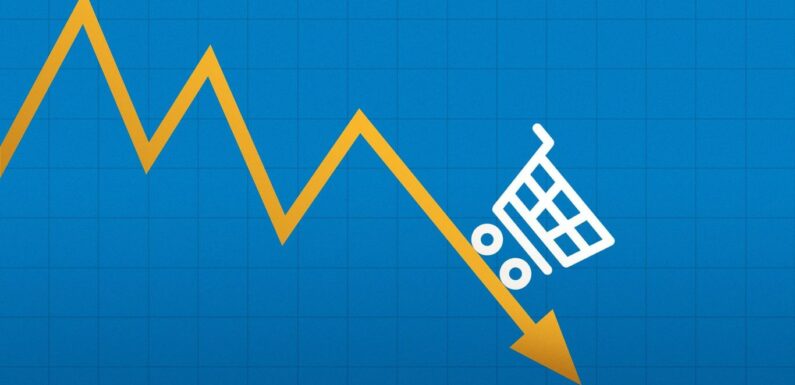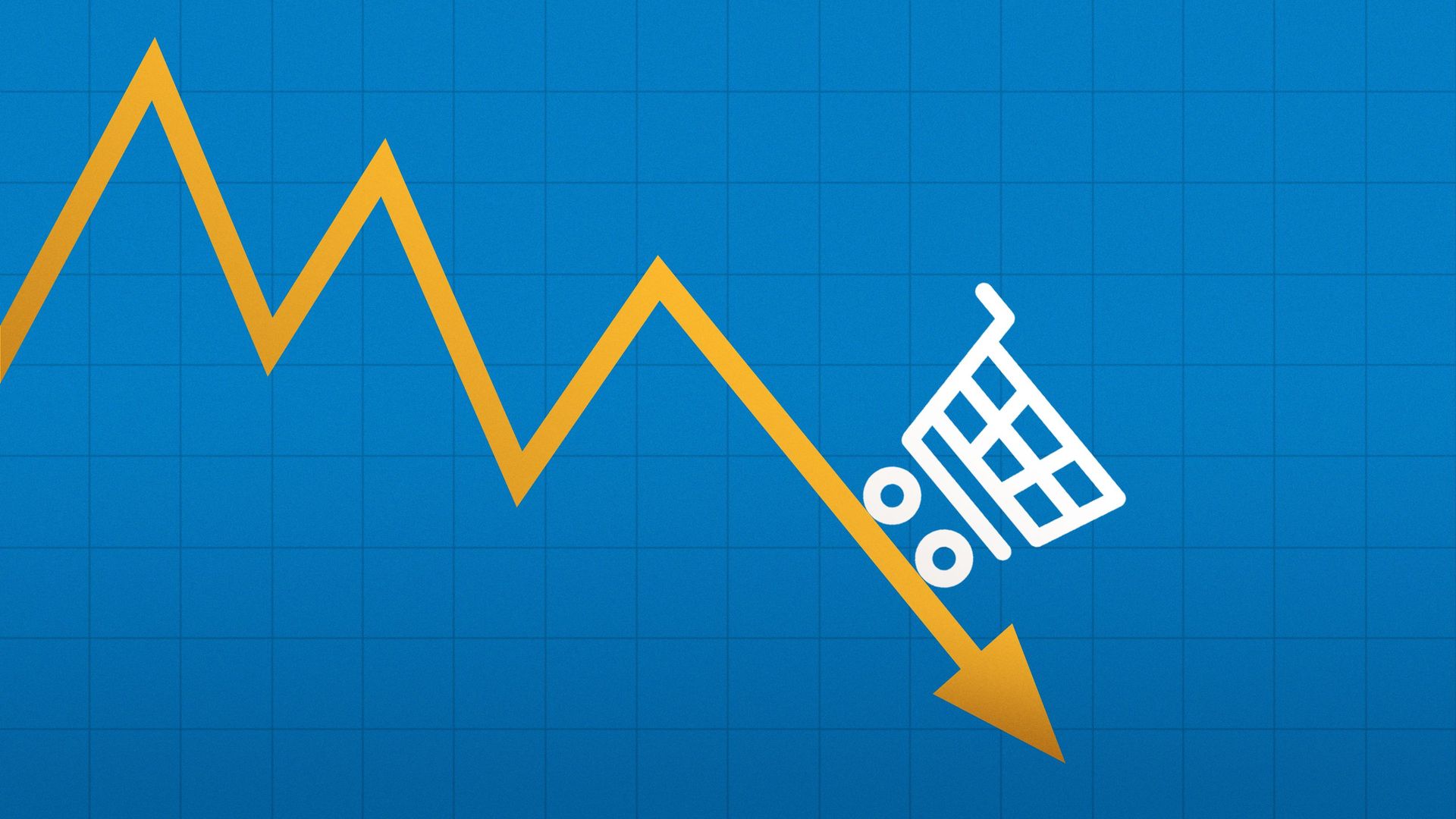
Illustration: Allie Carl/Axios
American consumers are pulling back — and that is the clearest sign yet that the rip-roaring economy of the past couple of years may be giving way to something else.
Why it matters: For all of the economic ups and downs within the past year, the consumer has largely been a consistent bright spot. But higher interest rates, persistent inflation and shrinking excess savings may finally be beginning to take hold and forcing consumers to cut back.
- If sustained, the implications for the economy are huge: Consumer spending accounts for about two-thirds of economic activity.
- And there are risks ahead, including a possible pullback in lending that would crunch consumers further.
Driving the news: Retail sales fell 1% in March, the Census Bureau said Friday morning, which followed a 0.2% drop in February. Even excluding gas stations affected by lower fuel prices, sales were down 0.6%.
- Declines included categories like general merchandise stores (-3%), electronics and appliances stores (-2.1%) and building materials and garden equipment retailers (-2.1%).
- In a marked deceleration, sales were up 7.6% on a year-over-year basis at the start of 2023, but that has now fallen to 2.9% — below the rate of inflation during that span, meaning that in real terms, spending has declined.
What they're saying: "While job and income gains remain strong, the cracks in the consumer sector are widening and a negative shift in hiring activity could be the final blow to place the economy in a recession," Ben Ayers, a senior economist at Nationwide, wrote in a note.
Between the lines: With more data coming in, it's looking like the spending surge that started the year was an outlier — with increasingly softer spending as the quarter progressed.
The big picture: Slower consumer spending is confirmed by private sector data, too. Spending on credit and debit cards per household at Bank of America rose just 0.1% year-over-year in March.
- That's the slowest pace since February 2021, owing in part to slower wage growth, smaller tax refunds and the expiration of a pandemic-era food assistance program, BofA says.
The other side: Early commentary from earnings calls suggests a more upbeat picture of the U.S. consumer.
- On spending, CFO Jeremy Barnum of JPMorgan, the nation's largest bank, said in an earnings call Friday morning that the bank has not "observed any notable pullback throughout the quarter."
Source: Read Full Article
